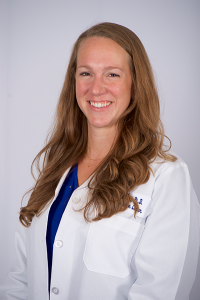“If we constantly have to talk to people about why fake science is wrong […], we will not be able to move biomedical research forward.”

Dr. Hillary Stires is a postdoctoral fellow at Georgetown University (Washington DC, USA). She is currently transitioning from cancer research to science policy work.
Hillary is particularly passionate about including patient advocates in the dialogue for the next frontiers of cancer research. She encourages other scientists to consider the patients’ concerns when designing experiments, and hopes to improve patient-researcher relationships by raising awareness in researchers.
During her curation on @sfprocur, Hillary will talk about the scientists’ responsibility to communicate their science with broad audiences. Not only are many researchers and institutes in biomedical sciences funded by the public, there is a lot of misinformation by non-scientists that is slowing biomedical progress.
background
Hillary grew up in Somerville, New Jersey (USA). Somerville is a small town and Hillary went to the same high school where her parents as well as her grandparents had met each other. She enjoyed growing up within the tight knit community.
She fell in love with biology in 7th grade. Her science teacher had a passion for science and gave the students opportunities to engage in science outside of class. Hillary still remembers her science project to build a system that represented a cell. They made an amusement park that included a roller coaster as the endoplasmic reticulum (good because it moved things around bad because it went in a circle, not from the nucleus to other parts of the cell) and a food stand as the mitochondria (good because it provided the energy for the patrons of the park but bad because the energy wasn’t made there).
“I continued to love biology and always knew I would have a career related to health. “
Hillary’s father would summarize her fascination for biology, her determined attitude, and compassion by telling her that “one day you’re going to cure cancer”.
Trying to accomplish this goal, Hillary became a research scientist. She was awarded a PhD in Endocrinology and Animal Biosciences at Rutgers University (State-University of New Jersey, USA) for her investigation of the role of estrogen in breast cancer. As a postdoctoral fellow at Georgetown University (Washington DC, USA) she studied endocrine resistance in breast cancer. Following the academic career track Hillary wanted to become a tenure track faculty member.
But her career path changed when cancer hit close. First her best friend was diagnosed with breast cancer at 28 years old in 2016. Then her brothers’ best friend was diagnosed with brain cancer in 2017. Hillary helped her friends and family navigate these cancer diagnoses. But soon she realized that there was a lack of communication between patients (and their families) and the clinicians (and other scientists).
To understand the patient side better, Hillary engages with patient advocates through the Georgetown Breast Cancer Advocates (GBCA) and #BCSM. This is an international forum of patient advocates with whom Hillary tweets Monday nights to stay on the front line of patient needs and to provide my scientific expertise. She finds that these interactions improve her research.
But these interactions also guided her towards a career in cancer policy, where she bridges the gap between the research community and the patient advocates.